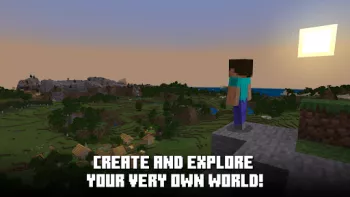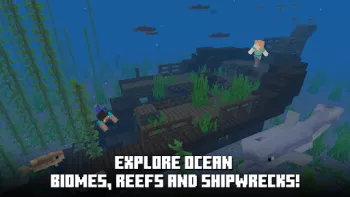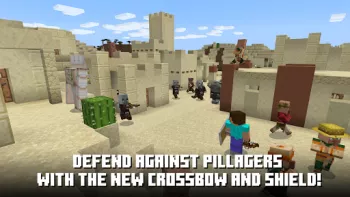Apps Home

The Essence of Open World Survival Games
Open world survival games have captivated the imagination of players worldwide, offering a unique blend of creativity, strategy, and exploration within virtually limitless landscapes. At the core of these games lies the player-driven narrative, where each decision and action contribute to your survival and overall experience. Unlike traditional games that funnel players through a predetermined storyline, open world survival experiences present expansive environments filled with diverse ecosystems, hidden secrets, and numerous challenges. The appeal of such games primarily stems from their free-form nature and the potential to craft your unique path. Players must navigate the intricacies of resource management, ensuring that they can gather the necessary materials to construct shelters, craft tools, and fend off potential threats. This genre effectively simulates the unpredictability of real-world survival, as players must adapt to changing conditions and think critically to overcome obstacles. Whether you're gathering wood in a dense forest or mining precious minerals from deep caves, the satisfaction derived from transforming raw materials into essential items is unparalleled. Furthermore, the integration of both cooperative and competitive aspects allows players to either collaborate with friends to build thriving communities or engage in fierce battles for resources. Open world survival games like Minecraft extend their appeal by allowing players to engage in both survival and creative modes, offering a dynamic gameplay experience where the only limit is your imagination.
The Technology Behind Open World Survival
The technological framework that supports open world survival experiences is as sophisticated as the games themselves, combining state-of-the-art graphics, procedural generation algorithms, and robust physics engines to create believable universes. Procedural generation is a key component, enabling developers to craft vast, complex worlds that offer a unique adventure every time a new game begins. These algorithms ensure that no two environments are identical, allowing for endless replayability and exploration. The challenge of rendering expansive worlds in real-time requires considerable computational power, requiring developers to optimize game engines diligently. Modern games leverage advanced rendering techniques to ensure high-quality visuals and smooth gameplay, balancing beauty with performance. Furthermore, sophisticated artificial intelligence systems drive dynamic interactions with non-player characters (NPCs), creating a living world where every creature or adversary behaves according to its survival instincts, adding another layer of realism and immersion. Real-time physics and environmental effects, such as weather systems, erosion, and organic growth, continuously change the landscape, pushing players to adapt their strategies and infrastructure. Technologies like cloud gaming and server synchronization allow multiplayer experiences to thrive, even in expansive settings, ensuring that your adventures with friends or rivals are seamless and engaging. Today, open world survival games are positioned at the cutting edge of gaming technology, a testament to the industry's relentless innovation and ambition.
The Cultural Impact of Open World Gaming
The cultural impact of open world survival games extends beyond entertainment, influencing how communities interact, collaborate, and express creativity. Players form online communities where they share experiences, tips, and content, fostering a sense of belonging and camaraderie that transcends geographical boundaries. The cooperative nature of many open world games teaches essential skills such as teamwork, communication, and problem-solving, applicable both in-game and in real-life scenarios. These games have become platforms for artistic expression; players use the vast canvas provided by the game to construct intricate structures, sprawling cities, and detailed replicas of real-world landmarks. Such feats are often shared on social media, inspiring others and furthering a culture of creativity and innovation. Moreover, educational institutions have started to recognize the potential of open world games as learning tools, using them to teach subjects ranging from geometry and physics to history and environmental science. Beyond individual enrichment, these games have also sparked conversations around sustainability, as players consider the environmental impact of their in-game actions, mirroring global concerns about resource management and ecological balance. The open world survival genre has become a cultural phenomenon, a testament to the gaming industry's ability to engage and inspire millions of players worldwide.
Crafting and Exploration: Designing Your World
At the heart of any open world survival experience lies the twin pillars of crafting and exploration. These elements grant players autonomy over their environment and the tools they use to navigate it. Crafting systems are meticulously designed to provide depth, requiring players to discover recipes, collect ingredients, and manage inventories efficiently to create essential tools, weapons, and structures. The joy of crafting in these games arises from the sense of progression and mastery as you gradually augment your capabilities, transforming basic resources into sophisticated items. Exploration complements crafting by presenting a world teeming with opportunities and challenges. Every corner of the map might house valuable materials, hidden treasures, or formidable adversaries, necessitating careful planning and courage from players. Open world games, like Minecraft, allow players to venture into biomes ranging from lush forests to barren deserts, each offering distinct materials and challenges. Whether battling mobs or deciphering the mysteries of the environment, exploration is both a test of survival skills and a source of endless wonder. Successfully navigating the world requires an understanding of its many facets, from climate and terrain to the behavior of wildlife, all of which impact your strategy and chances of survival. The synergy between crafting and exploration empowers players to leave a lasting mark on the game world, encouraging a personalized adventure rich with discovery and achievement.
Bringing Your Survival Experience to Life
The culmination of open world survival games lies in the meaningful experiences they provide and the stories players create. Your survival journey is a tapestry woven from countless interactions, experiences, and choices made within the game world. The autonomy offered by open world games enables you to create narratives unique to your play style, whether you become a lone wanderer, a community builder, or a crafty survivor thriving against the odds. Multiplayer experiences further enhance this by adding social dynamics, from cooperative building endeavors to competitive survival challenges, where players can engage with others, share resources, and forge alliances. The fluidity of open world survival games allows them to evolve alongside technological innovations and player feedback, continuously refining and expanding the experience. Download opportunities, such as the Download for Android, and community-driven content ensure a vibrant ecosystem that brings fresh life to the game world. Through engaging with these games, players not only explore and survive in diverse environments but also contribute to the development of gaming culture, learning valuable skills and perspectives along the way. Ultimately, the open world survival experience is a celebration of creativity, exploration, and resilience, inviting you to partake in an adventure where the world is yours to shape.
Share Your Opinion
Your Email Will Not Be Published.
All Rights Reserved © Apps Home 2025































Jayshree s Raturi
THIS IS GOLD. Even though every world is the same, the experience is awesome. Besides, it means that I can study the map through. Like finding a vi...
Srimanta Karmakar
This is a game that tells us about the real Minecraft but it has a time limit after which we can't play it. In this game I build my own house and m...
Mangala Rai
l love this adventurous game and I never wanted to delete this one because it was so wonderful that I didn't even become bored .But the problem is ...
Thakor Kaushik
I love Minecraft! I wanna buy this but im too young to have an online payment account. It's just like PC version but the controls can be a little b...
Korina Sangma
it's very amazing game best game ever i love this game its fun to play and i enjoy it but i scared from montres most from skeleton it was like heat...